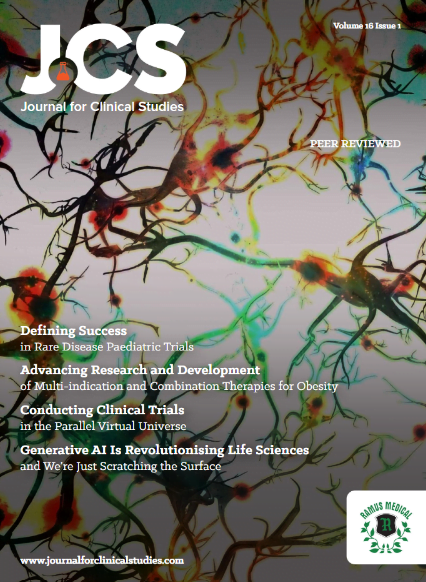
Bionomics will recruit about 40 elderly patients in specialist geriatric hospital wards across Australia.
Bionomics Ltd (ASX:BNO) has commenced a phase II clinical trial of its therapeutic candidate, BNC210, in elderly patients with agitation in the hospital setting.
BNC210 is a novel, first-in-class, negative allosteric modulator that has been shown to be well tolerated and not sedating.
Targeting a major unmet clinical problem
Agitated behavioural disturbance in elderly patients is a major unmet clinical problem, occurring acutely in hospitalised patients and chronically in nursing home residents.
These agitated behaviours can cause distress for the patient, distress to other patients, and can interfere with the therapeutic procedures for which the patient was hospitalised.
Whilst there are no approved treatments for agitation, current options include benzodiazepines and antipsychotics which can have severe adverse effects in elderly patients.
Trial designed for short treatment and rapid recruitment
Bionomics has already recruited the first participant into the trial.
The trial, designed for short treatment and rapid recruitment, will evaluate the effect of BNC210 on the resolution of agitation and assess the safety and tolerability of BNC210.
Bionomics will recruit about 40 elderly patients in specialist geriatric hospital wards across Australia, and is a randomised, double-blind, placebo-controlled design with a 5-day treatment period.
Results to be available in the first quarter of 2019
The results of the clinical trial are expected to be available in the first quarter of calendar year 2019.
Bionomics chief executive officer and managing director Dr Deborah Rathjen said: “Bionomics has entered an important period with the results of two ongoing phase II trials now anticipated near term.
“Agitation in the elderly, which has an underlying component of anxiety, has significant unmet treatment needs, with only approximately 9% of patients suffering agitation receiving drug treatment”.
BNC210 is a novel, first-in-class, negative allosteric modulator that has been shown to be well tolerated and not sedating.
Targeting a major unmet clinical problem
Agitated behavioural disturbance in elderly patients is a major unmet clinical problem, occurring acutely in hospitalised patients and chronically in nursing home residents.
These agitated behaviours can cause distress for the patient, distress to other patients, and can interfere with the therapeutic procedures for which the patient was hospitalised.
Whilst there are no approved treatments for agitation, current options include benzodiazepines and antipsychotics which can have severe adverse effects in elderly patients.
Trial designed for short treatment and rapid recruitment
Bionomics has already recruited the first participant into the trial.
The trial, designed for short treatment and rapid recruitment, will evaluate the effect of BNC210 on the resolution of agitation and assess the safety and tolerability of BNC210.
Bionomics will recruit about 40 elderly patients in specialist geriatric hospital wards across Australia, and is a randomised, double-blind, placebo-controlled design with a 5-day treatment period.
Results to be available in the first quarter of 2019
The results of the clinical trial are expected to be available in the first quarter of calendar year 2019.
Bionomics chief executive officer and managing director Dr Deborah Rathjen said: “Bionomics has entered an important period with the results of two ongoing phase II trials now anticipated near term.
“Agitation in the elderly, which has an underlying component of anxiety, has significant unmet treatment needs, with only approximately 9% of patients suffering agitation receiving drug treatment”.















